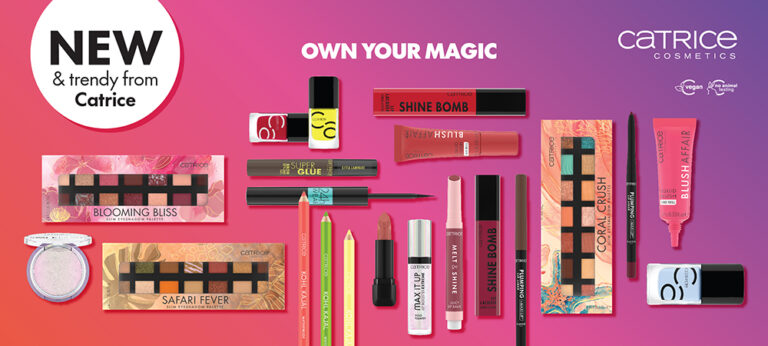We all know that eating a balanced diet is essential if we’re to get in all the vitamins and minerals we need for good health. Thing is, in a world where so many people are allergic, sensitive or choosing to exclude certain food types, deficiencies are running rife.
Also, it’s not always possible to get everything you need from just your diet alone. As an example, those with a condition like non-Celiac gluten sensitivity are often misdiagnosed as having irritable bowel syndrome (IBS). They continue to eat foods containing gluten that creates a chronically inflamed colon that doesn’t absorb things the way it should.
Fortunately, you can ensure you’re getting enough of what you really need via supplements, but this can be tricky too. If you go into any pharmacy, you can end up feeling completely boggled by the dizzying array of what’s available. Happily, we’ve got a list of some of the most important nutraceuticals for your health to help you make supplementation all too easy.
Multivitamins and minerals
When it comes to your supplement checklist, a good multivitamin that also contains minerals should be the first thing you tick off. To ensure the one you choose is hitting all the right notes, ensure that it contains the following: All the B vitamins (B1, B2, B3, B5, B6, B7 (biotin) B9 (folic acid) and B12), vitamin C, D and E, calcium, iron, magnesium, manganese, selenium and zinc.
A top pick: Renewal Institute Multivitamin and Mineral
If you’re a woman in your 40s or older, calcium and magnesium are essential for bone health and the prevention of osteoporosis. You might have to add another supplement, depending on which multivitamin you’re taking, to ensure you’re hitting your required recommended daily allowance (RDA). For calcium, it’s 1 200 to 2000 mg a day and magnesium is 310 to 420 mg a day.
Omega-3 fatty acids
Omega-3 fatty acids are multi-tasking healthy fats that can help lower cholesterol, reduce inflammation, prevent dementia and protect against heart disease. As your body can’t make them, you need to get them from food sources or supplements. When it comes to the latter, the best kind are called DHA and EPA and are found in fish. Another type, called ALA, comes from plant sources like spinach. The reason why fatty acids that come from fish are far superior? Your body can only convert a small amount of ALA into EPA and DHA and isn’t especially good at it.
The RDA for omega-3 is 500 mg if you’re healthy, 1000 mg if you have heart disease and up to 4000 mg if you have high triglycerides, the ‘bad’ fat found in your blood.
A top pick: Renewal Institute Omega 3
A good probiotic
Your digestive tract contains a delicate ecosystem of bacteria, both good and bad. Alas, the bad bacteria often multiplies to the point where it can cause a wide array of issues that range from chronic bloating and constipation to hypertension and leaky gut. There are lots of things that can affect the balance of your gut and these can include stress, a change in diet and eating contaminated food. This is why it’s important to keep your bad bacteria in check with a probiotic.
Not all probiotics are created equally. To ensure you pick a good one, look out for formulations that include at least 1 billion colony forming units and contain one of the better-researched types that include Lactobacillus, Bifidobacterium or Saccharomyces.
A top pick: Renewal Institute Probiotic LP-SCB contains 20 billion colony forming units of Saccharomyces.
A natural anti-inflammatory
If left unchecked, chronic inflammation is the fast track to premature ageing and an array of diseases including cancer. This is why eating an anti-inflammatory diet is important, but not everyone manages to cut out the culprits – sugar, fried foods, processed meat and refined carbohydrates.
Still, you can reduce inflammatory foods to a minimum and up your intake of inflammation fighters like vegetables, oily fish, nuts, seeds and healthy oils. You can also invest in the brilliant anti-inflammatory antioxidant that is green coffee bean extract. It contains no caffeine and studies have shown that it may assist with lowering blood sugar levels and blood pressure and has cardiovascular and weight loss benefits.
A top pick: Renewal Institute Green Coffee Bean Extract
The bottom line
Ultimately, getting all the nutraceuticals you need from your diet would be first prize, but it’s not always possible to do. Thankfully, with a few cleverly chosen supplements you can get to enjoy optimum nutrition. Still, if you’re unsure about what you should be taking, make an appointment to chat with one of the doctors at Health Renewal. They’ll be able to create a custom supplement solution to suit your needs and ensure you’re getting everything you need to feel great!






3 Responses
What can one use to boost collagen and also Vitamin E
It’s good to know what to look out for in supplements, and daily intake required. As there is too much over the counter brands available. Thanks for the information
What good probiotic can one use that doesn’t make you feel bad and that you can get at your local pharmacy?